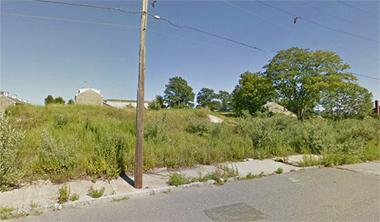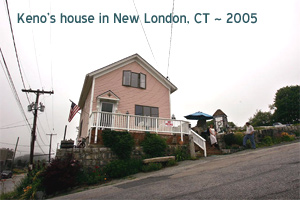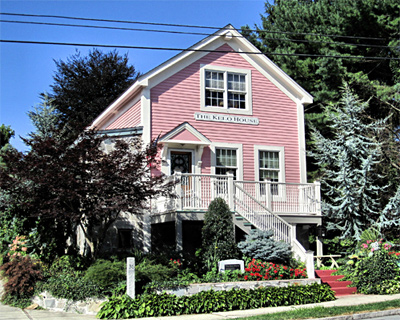It’s been almost a decade since the United States Supreme Court decided that the city of New London, Connecticut was well within its rights to force private citizens to relinquish their property for – what basically amounted to – the good of the collective. Unbelievably, the once-disputed property is still vacant. Worse – it’s a blight. As National Review Online reports, Nine Years after Kelo, the Seized Land Is Empty ~

Fort Trumbull in New London, Conn., was bulldozed to fulfill the vision of politicians and developers eager to create a New Urbanist mixed-use “hub” for upscale living in the depressed town near the mouth of Long Island Sound.
(Now), the land is nothing but vacant urban prairie. After homeowners were forced off their property for the sake of “economic development,” the city’s original development deal fell apart, and the urban-renewal corporation that ordered the destruction has not found a developer to use the land.
In Kelo v. City of New London seven property owners – including Susette Kelo, owner of the “Pink House” – fought the eminent domain filings all the way to the Supreme Court.
 The justices’ 5:4 ruling affirmed that government may forcibly transfer property from one private owner to another if the government believes the latter will generate greater economic activity.
The justices’ 5:4 ruling affirmed that government may forcibly transfer property from one private owner to another if the government believes the latter will generate greater economic activity.
This, boys and girls, is what’s known as judicial activism.
As Heritage Foundation explains, judicial activism occurs when judges write subjective policy preferences into the law rather than apply the law impartially according to its original meaning.
In their analysis, the Kelo case was clearly activist because ~
… the court strained the plain text of the Constitution to achieve their apparent desired ends, bending terms to the point of breaking. The Takings Clause in the Fifth Amendment was enacted to prevent the government from infringing on the private property rights of citizens, a right which was fundamental to the American Founding. Thus the words “public use” limited the government’s power to the taking of private property only when the land desired would be used by the general public. Roads, schools, or libraries would be permissible grounds for public takings under this original understanding.
The Court abused precedent, reinforcing grave errors by extending the misinterpretation of “public use” as being the equivalent of “public purpose,” which not only displaces the language of the Clause, but invites limitless infringement on one of our most fundamental rights. As Justice O’Connor states powerfully in her dissent, “Under the banner of economic development, all private property is now vulnerable to being taken and transferred to another private owner, so long as it might be upgraded—i.e., given to an owner who will use it in a way that the legislature deems more beneficial to the public—in the process.”
So, other than to illustrate the post-Constitutional nature of present-day America, was this whole episode was for naught?
Not necessarily.
Two years ago New London actually did stumble upon a good use for the 91 acres of misbegotten land ~ Kelo Aftermath — The Final Indignity ~
Now, we learn from the local newspaper (August 2011), The Day, that following Hurricane Irene, the city has designated the Fort Trumbull redevelopment site as a place to dump vegetation debris.
Seriously, this lesson in BIG Government overreach served as a wake-up call for liberty-loving Americans across the country; inspiring many to shore-up private property rights legislation in their local communities to avoid similar shameful episodes.
And happily, the “Pink House” actually got a new lease on life ~

In June 2008 Susette Kelo’s house was moved to a new site on Franklin Street. The dedication plaque out front reads as follows ~
This little pink house was the subject of the landmark 2005 U.S. Supreme Court case Kelo v. City of New London, one of the most widely despised decisions in the Court’s history. In Kelo, the Court ruled that New London could take this home and others and give the land to a private developer in the name of “economic development.”
The case caused a nationwide backlash against eminent domain abuse, resulting in reform legislation in more than 40 states and numerous state court decisions in favor of property owners. It also inspired citizen activism to protect property rights from takings for private development.
This house, moved from the Fort Trumbull neighborhood, stands as a testament to the bravery of Susette Kelo and her neighbors, and to the thousands of others who have battled and are battling the abuse of eminent domain across the country.





Pingback: Saturday Shorts – 11-24-18 | Designs on the Truth